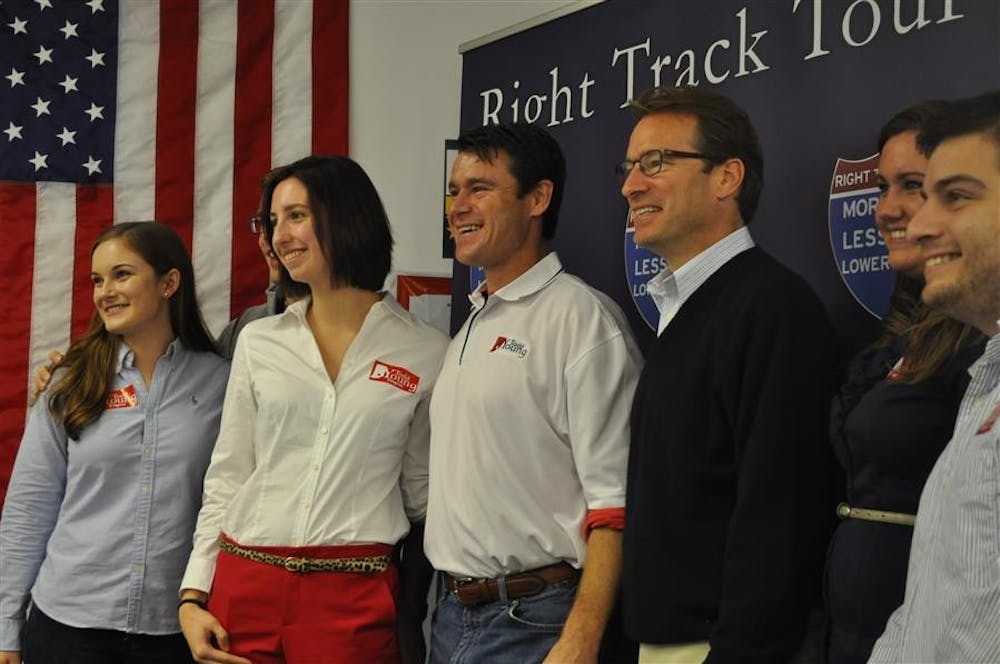Campaigns for the 2014 primary election are underway, but on-campus organizations must navigate University and party policies as they seek votes for their candidates.
IU has a number of policies regulating the actions of employees and student groups, which are designed to protect the University’s tax-exempt status and ensure the public perceives the institution as nonpartisan.
“As a political organization on campus, we can’t actually get funding from IUSA,” said Morgan Mohr, political affairs director for the IU College Democrats. “We just don’t get money from the University period, because all of our action is politically oriented.”
IU takes the funding and other policies designed to eliminate the appearance of candidate endorsement very seriously, said Mark Land, associate vice president for University Communications. They were communicated to students and employees via an email last week from IU vice presidents Mike Sample and Jackie Simmons.
“While a single violation of our policies regarding political activity isn’t likely to threaten our tax-exempt status, we have a responsibility as an institution to be nonpartisan as it relates to political elections,” Land said in an email. “The University takes great care to not be seen as endorsing individual candidates.”
The Board of Trustees long ago established strict fundraising policies that limit not only political events on IU’s campuses, but also other kinds of fundraising, Land said.
Except for scholarships and other funds that directly benefit students or the University, fundraising events are generally not allowed. This is especially true for politics.
“We do not believe that we can support external groups’ fundraising efforts that do not benefit students or the institution in some way,” Land said.
For student organizations like the College Republicans and College Democrats, this means finding funding through outside donations.
It also means working with IU officials to ensure they’re complying with University policies.
“Now that I’m leading a group, I have to make sure we comply with the University,” IU College Republicans Chairman Riley Parr said. “We’re a group under the University’s umbrella, and so we have to make sure we follow the University’s rules. From at least my look at them, they don’t seem unduly burdensome.”
The campus party organizations are also limited at this stage in the campaign by their own policies, which generally lead them not to endorse candidates in contested primary races.
Because their goal is to elect as many officials as possible from their party, they channel most of their efforts into the November general election, Mohr said.
The College Republicans do the same, Parr said, but the organization might make an exception this year for the 9th District U.S. House of Representatives race.
“At least formally we haven’t decided as a board that we’re going to change that policy, which isn’t really a policy but just something that’s understood,” Parr said. “I’m 100 percent behind Todd Young, and I don’t think he’s going to have a problem in the primary. We may make an exception in this case and issue a statement of support for Congressman Young.”
For the most part, right now, campus groups are thinking about the long-term and planning how they’ll campaign in the fall. Groups are encouraging students to vote, and especially to vote for candidates from each respective party.
“We know this isn’t the sexiest election,” Mohr said. “The top of ticket is secretary of state and state auditor. But those play a really important role in state
politics.”
Campus party groups restricted in primary

Get stories like this in your inbox
Subscribe



